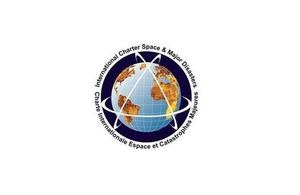International Charter space data to support Red Cross and Red Crescent disaster relief efforts
On the International Day for Disaster Reduction, the International Charter 'Space and Major Disasters' agreement with the UN (UNITAR-UNOSAT) is to be extended to include the International Federation of Red Cross and Red Crescent Societies (IFRC).

The world’s largest humanitarian network of 190 national societies will now have access to disaster mapping services based on satellite data supplied by the International Charter members.
Sune Bülow, Team Leader, Emergency Operations and Information Management at IFRC said:
Having immediate access to data and derived analysis for disaster prevention, response and recovery, is of vital importance to the IFRC. Both in the first hours of a sudden-onset event and throughout response to protracted crises, the Red Cross and Red Crescent National Societies are often among the first disaster responders, and access to the International Charter will only improve the already formidable partnership with UNOSAT and ensure that we are also among the first to receive and analyse information.
Since 2000 the International Charter ‘Space and Major Disasters’ has been using space data to provide help to those affected by disasters.
The Charter, a group of space agencies, works to mitigate the effects on human life and property by providing rapid access to satellite data to assist rescue authorities in the event of a natural or manmade disaster.
Einar Bjorgo, Manager of the United Nations Institute for Training and Research stated:
We need to ensure maximum impact from Earth Observation data during disasters. Being able to support the International Federation of the Red Cross and Red Crescent Societies, and their national members, with satellite image analysis derived from Charter data will greatly contribute to this goal.
Chris Lee, Head of International Policy at the UK Space Agency and outgoing Chair of the Disasters Charter noted:
We are proud to have agreed this new relationship with the International Federation of Red Cross and Red Crescent Societies. This is a fantastic opportunity for the Charter to make a real difference to communities and disaster management efforts on the ground, made possible through our work with the United Nations.
Recent activations
Requests for Charter support for emergencies have included Hurricane Irma, which hit the United States and parts of the Caribbean in early September and Hurricane Maria, a devastating storm that affected the Caribbean just a couple of weeks later.
Hurricane Irma, a Category 5 storm, ploughed through the Caribbean on 6 and 7 September 2017. In the Caribbean the storm left at least 44 dead and thousands of people were made homeless. In the United States at least 80 people were killed and the storm left flooding and damage to infrastructure in its wake.
The Charter was involved in the planning and coordination of the emergency response operation by providing satellite-derived analysis of building damage, flooding and mapping.
Hurricane Maria followed in the wake of Hurricane Irma and affected some of the same countries, with devastating results to some of the islands. Maria made landfall in Dominica on 19 September with the giant storm totally engulfing the island. It left 15 dead and devastated the island.
It then caused flooding and landslides in the Dominican Republic where at least two people were killed and 10,000 people were forced to evacuate their homes. In Puerto Rico 15 people were killed and the entire island was left without power. In the U.S. Virgin Islands one person was killed, while two people were killed in Guadeloupe. Again, the Charter helped by providing damage assessment and information on flooding and damage assessment.